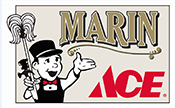It’s fall! If we lived on the East coast we would be blogging about turning leaves and winterizing our garden plots for the coming snow. But we live in the Bay Area and while there are things that need to be done to winterize, for the most part, our gardens are capable of growing year-round. So, today we are going to be talking about the super sexy NSFW(not really) topic of….Mulch! What? You think mulch isn’t sexy? Well read on and see if we can change your mind on how “hot” mulch can be.
What is mulch?
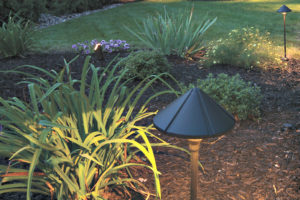
This seems like an obvious question if you have ever been into one of those big places with stacks of “soil amendments”. You look for the bag that says mulch. But actually, the term mulch is much broader than we think. Mulch is, technically speaking, any organic (we will get to that) substance that is spread on a garden bed. So, while a lot of those bags say terms like mulch or compost or bark, they are all technically mulch. The cool thing about mulch is that it can also be made of old cardboard, fallen leaves, or even plastic. It is the ultimate garden recycling project, and hey, nothing is sexier than being eco-friendly by recycling. You can even use it in your OkCupid profile “Things I Like: Recycling, saving the world, nurturing growth”.
What does mulch do?
Mulch at it’s most basic insulates the ground around your plants. This can accomplish a multitude of things like keeping water from evaporating in heat, keeping the ground from freezing in a cold snap and keeping weed growth down by limiting open space for weeds to take hold. To look at this fascinating multi-talented product more closely let’s break it down by some basic types.
Types of mulch.
Wood
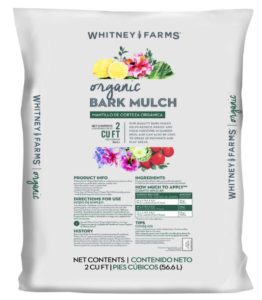
For the most part when you buy the bags that are prominently titled “mulch” they are usually something like shredded cedar mulch or redwood bark. Both of these will insulate the ground from both evaporation and freezing. They both inhibit weed growth, and they both have the added benefit of looking really pretty when they have just been spread. The shredded bark is a lighter cover that allows smaller plants to grow and is great for annuals. If your plants are more established or if you are mulching around large plants like trees or hedges you can use the chunkier wood instead. Ceder is especially useful as it is slow to decay and will not need to be replaced as often as straw or paper. However, the decomposition of Cedar and Redwood can have some negative effects on your plants. If you are not sure if this is a good option for you come in and chat with us. Bring a soil sample if you want and we can help you decide if your garden has enough nitrogen for the plants you want, and the bark you choose, or if you will need to fertilize your plants.
Death
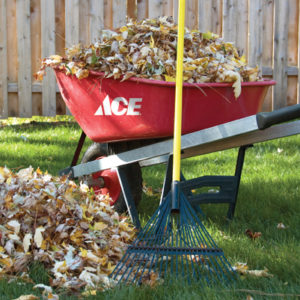
The specific thing that most cultures find “sexy” (okay that’s a stretch interesting is a better term) about death is the concept of re-birth. This is where mulch comes in. Specifically what we are talking about is fallen leaves and grass clippings. Come autumn, even here we do have some Deciduous trees that shed their leaves which need to be raked and pulled out of gutters and eaves before the rain starts. We also have higher fire risks as the summer wanes on, and so we need to keep fields and lawns clear and well mowed. But instead of filling that big green can out front, did you know that you can take all those dead leaves, and grass clippings and turn them into mulch? First things first, this is not really an “easy” option if that is what you are looking for. You can put leaves and grass clipping directly on your garden bed, but there is a very good possibility that instead of adding nutrients it will instead rob the soil of nutrients. It also is more likely to rot things that way. So what to do? Rot it yourself! Yep, composting turns dead leaves and grass into healthy nutrient-packed mulch for your soil. The best part is you can add things like eggshells and coffee grounds if you want for more nutrition and better trash management in your kitchen. So dead leaves and grass when rotted are actually life-giving mulch and fertilizers which also help lower fire hazard by removing fuel and lessen your household garbage. Yep, this type of mulch is like a Phoenix, and glorious rebirth is sexy (or at least really cool).
Poop
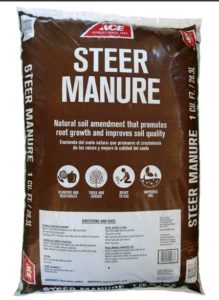
Even we are not going to try and pretend that there is anything sexy about manure. But, we will point out that various forms of animal waste are very good for your garden, provided that they have been composted correctly. The most common manure mulch you see will be Steer manure. But horse is also fairly common. Some larger agriculture firms use turkey manure, and of course, there is Bat Guano. You want to make sure that you are getting your manure from a certified organic and reputable place. You see, uncomposted manure can still contain viable seeds and diseases. The composting process renders the manure sterile while still maintaining its high nutrition value. No, do not think about the words nutrition and manure in the same sentence, we are moving on! Although as a side note, we are told that dried horse and cow manure make very warm fires, and that bat guano is worth its weight in gold, but we don’t want to know how anyone found out.
Cardboard/paper
You can, and many people do, use old paper and cardboard for mulch. The pros, of course, is that it provides a lot of the same benefits as wood mulch (for obvious reasons) but you generally don’t have to do anything special to it like with composted mulch, and it is usually free. You are also recycling in a way that gives directly back to the Earth. So, if you use cardboard/paper as mulch it means that you are a ‘financially savvy earth warrior’. Try that as your next tagline on Bumble and see the bees come buzzing. There is, however, one major drawback to this type of mulch, it decomposes very fast. To keep your garden bed looking neat and to keep the benefits consistent you will need to remulch periodically. So while it might be less work up-front, using cardboard/paper will end up as more work in the long run, but hey, nothing is sexier than an honest day’s work…or so we are told.
Straw
Why is straw not part of the leaves/grass paragraph? Well, because usually, this is something that you buy ready to spread and not something that you have prepped yourself. While you do need straw to start your compost bin, usually when straw is used as a mulch it comes in either a bale or a roll that is loosely held together. It looks great and is easy to spread. Also, if you are growing potatoes you can grow them entirely in straw which is a lot cleaner than having to dig them out at the end of the season. Also, if you buy a bale of straw it comes highly compressed so you can cover a lot of ground with one bale and they are usually relatively inexpensive. But, like using manure you have to be careful about the source. We like to use rice straw because our home backs up to a National Park and as such we cannot take the risk of stray seeds. If you buy wheat straw there is a higher possibility that it is mixed with grasses or other seeds that will grow as an invasive species. Straw does also not have the more specific nutrition additives of things like composted leaves, or manure so while it is a good easy way to retain moisture if you want a multi-tasking mulch you may want to combine it with compost.
Stones
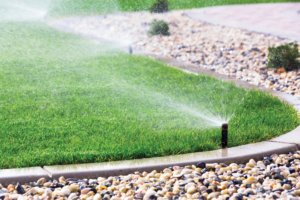
You can technically use stones and pebbles as mulch. This is going to be more useful if you are doing Xeroscaping or planning a rock garden, but you have to be careful if you are trying to do this with more traditional gardens. Stones, are great insulators and trap heat next to the soil, which is great in cold weather but can burn your plants in hot weather. Also, to get enough colorful stone to do a decent job can get expensive. All in all, unless you are planting a succulent/cacti (remember we learned that all cactus are succulents but not all succulents are cactus here). Stones should be used sparingly. Overall, stones are not a great mulch, but are a great way to show off your artistic talent for borders, walkways, and the occasional rock art, and hey as all actors/musicians know artistic talent is super sexy!
Plastic/ Rubber
Okay, we promised we would get back to that thing about mulch being organic. As anyone who has spent a lot of time in the Goth clubs can tell you plastic and rubber are about as non-natural as material can be. They don’t breathe i.e. all the sweat stays on your skin, and you are usually a good 10 degrees warmer than the rest of the club. They also are impossible to get into/out of quickly as they stick. Mix that with the fact that you can’t actually wash them in the traditional way, and you may well wonder why anyone would want to wear them. We don’t know, and if you do, we are not sure we want to know. But, we do know that the things that make them bad clothes make them fantastic mulch. They are naturally insulating, keep moisture close to its source, don’t decompose or get destroyed by the elements. Usually, when using these as mulch you are using either sheet plastic which is common for crops like strawberries as it keeps the fruit off of the ground while also insulating the soil or shredded rubber. Shredded rubber is usually used more in industrial applications and is rarely used in a home garden. For one thing, the rubber will not decompose, so when you want to change the look of your garden you will need to deal with old rubber mulch. Also, while technically using rubber is recycling, neither of these products give anything back to the soil like a good compost will. So, yes, you will see plastic/rubber “mulch” i.e. a product that goes on the ground near your plants to insulate the soil, but for our purposes, we do not promote it as it is not an organic product and we think it’s important that gardening be as natural as possible.
So why is mulch sexy?
Yes, we promised we would convince you that mulch is sexy. Well now that you know a little bit more about it we can really dive deep into the complexity of mulch as an entity and how it makes us feel, and….sorry, our boss just walked in so instead here is the compressed view:
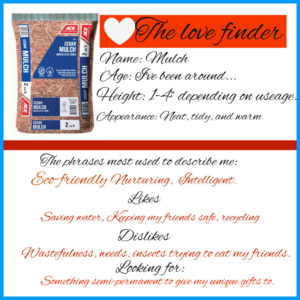
There you have it. If you want to meet your mulch match stop by the store and talk to any of our helpful hardware team we are always happy to listen in a non-judgemental way on what really gets your tomatoes growing, if you know what we mean. (We mean tomatoes )
